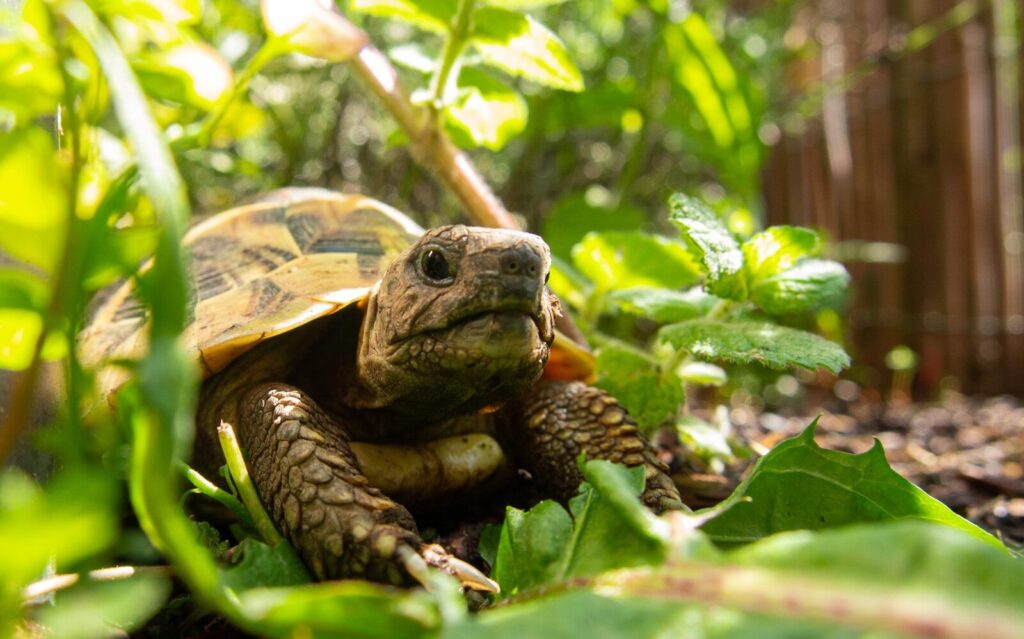How the Illegal Sale of Pet Turtles Sparked a Salmonella Outbreak and Why It Matters
Published on February 28, 2026 by Dr. Ahmad Mahmood

A recent salmonella outbreak linked to the illegal sale of small pet turtles is more than a consumer safety issue. It reveals how gaps in wildlife regulation, informal animal markets, and public health enforcement intersect — creating preventable disease risks in the United States.
While the Centers for Disease Control and Prevention (CDC) routinely warns about reptile-associated salmonella infections, the persistence of outbreaks tied to illegally sold turtles highlights a deeper systemic vulnerability.
This is not just about turtles. It is about how wildlife trade and public health systems overlap.
What Happened: Salmonella and Small Pet Turtles
Health authorities identified multiple cases of salmonella infections linked to contact with small pet turtles — often those sold illegally through informal vendors, flea markets, or online platforms.
The sale of turtles with shells less than four inches long has been banned in the United States since 1975 because young children are especially vulnerable to salmonella transmission.
Yet illegal sales continue.
Small turtles are attractive as pets, inexpensive, and easy to distribute — making enforcement difficult.
Why Turtles Carry Salmonella
Salmonella bacteria naturally inhabit the intestinal tracts of reptiles, including turtles. Unlike mammals, turtles can carry the bacteria without appearing sick.
Transmission occurs through:
- Direct handling
- Contaminated water in aquariums
- Surfaces touched after handling turtles
- Poor hand hygiene
Children under five face higher risks of severe illness, including hospitalization.
The issue is not new. But its persistence is telling.
Why the Illegal Turtle Market Persists
Despite federal restrictions, illegal sales continue due to:
- Low-cost breeding operations
- Informal pet markets
- Online resale platforms
- Weak enforcement at local levels
- Public unawareness of the ban
The law exists, but monitoring fragmented retail environments is complex.
This creates a recurring pattern: regulation on paper, leakage in practice.
The Larger Public Health Lesson
Outbreaks tied to wildlife contact expose an important reality:
Human health systems are tightly connected to environmental systems.
When animals are bred, transported, and sold outside regulated frameworks, disease risk increases. This is especially true in markets where hygiene standards are inconsistent.
Although salmonella from turtles is not the same as emerging pandemic viruses, the structural issue is similar:
Unregulated animal trade creates biological risk pathways.
Wildlife Trade and Zoonotic Risk
The United States is one of the world’s largest markets for exotic pets.
While much focus falls on international wildlife trafficking, domestic breeding and resale markets also present oversight challenges.
Wild animals and reptiles can carry:
- Bacterial pathogens
- Parasitic organisms
- Viral agents
In most cases, these risks are manageable with proper regulation, education, and enforcement.
When oversight weakens, outbreaks follow.
Environmental Systems and Biosecurity
From a systems perspective, illegal wildlife trade intersects with:
- Environmental regulation
- Public health infrastructure
- Consumer protection
- Education systems
The turtle-associated salmonella cases illustrate how small regulatory gaps can generate recurring health events.
Biosecurity is not only about international borders or pandemic preparedness.
It also includes domestic animal markets operating below regulatory thresholds.
Climate Change and Disease Ecology
While the current outbreak is not directly caused by climate change, broader environmental shifts influence disease patterns.
Warming temperatures affect:
- Bacterial survival rates
- Habitat ranges of wildlife
- Waterborne pathogen persistence
As ecological systems change, interactions between humans and wildlife may increase — particularly in urban and suburban settings.
This makes robust regulation and public awareness even more important.
Policy and Prevention: What Actually Works
Reducing turtle-associated salmonella cases requires:
- Stronger enforcement of existing federal law
- Monitoring of online sales platforms
- Public education campaigns
- Clear labeling requirements
- Retail inspections
The 1975 federal ban dramatically reduced cases when first implemented.
The challenge today is compliance in decentralized marketplaces.
Why This Matters Beyond Turtles
At first glance, a salmonella outbreak tied to pet turtles may appear minor compared to larger environmental crises.
But these incidents reveal something critical:
Public health resilience depends on environmental governance.
Small-scale wildlife trade, when poorly regulated, creates avoidable disease exposure.
In a world increasingly aware of zoonotic spillover risks, these lessons matter.
Not because turtles are dangerous.
But because systems matter.
Frequently Asked Questions (FAQ)
Can pet turtles legally be sold in the United States?
Turtles with shells under four inches long cannot legally be sold as pets in the U.S., with limited exceptions for educational or scientific purposes.
Why are small turtles banned?
Small turtles are more likely to be handled by children, increasing salmonella transmission risk.
Is salmonella from turtles common?
Reptile-associated salmonella infections occur regularly, though most cases are preventable with proper hygiene and regulatory enforcement.
Are turtle-related outbreaks increasing?
Outbreaks have occurred periodically over decades, often linked to illegal or informal sales channels.